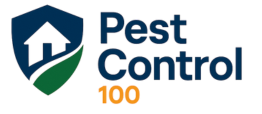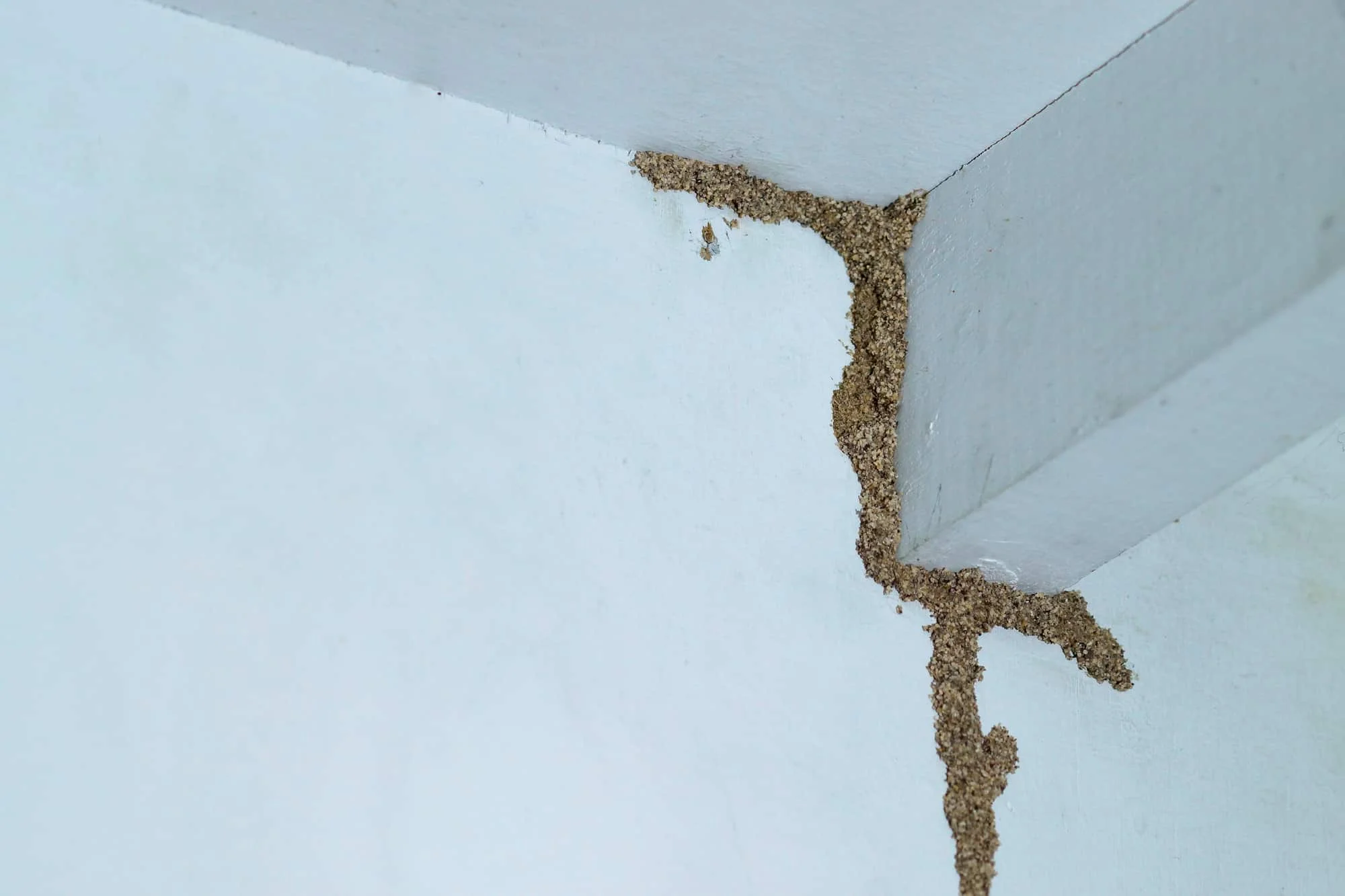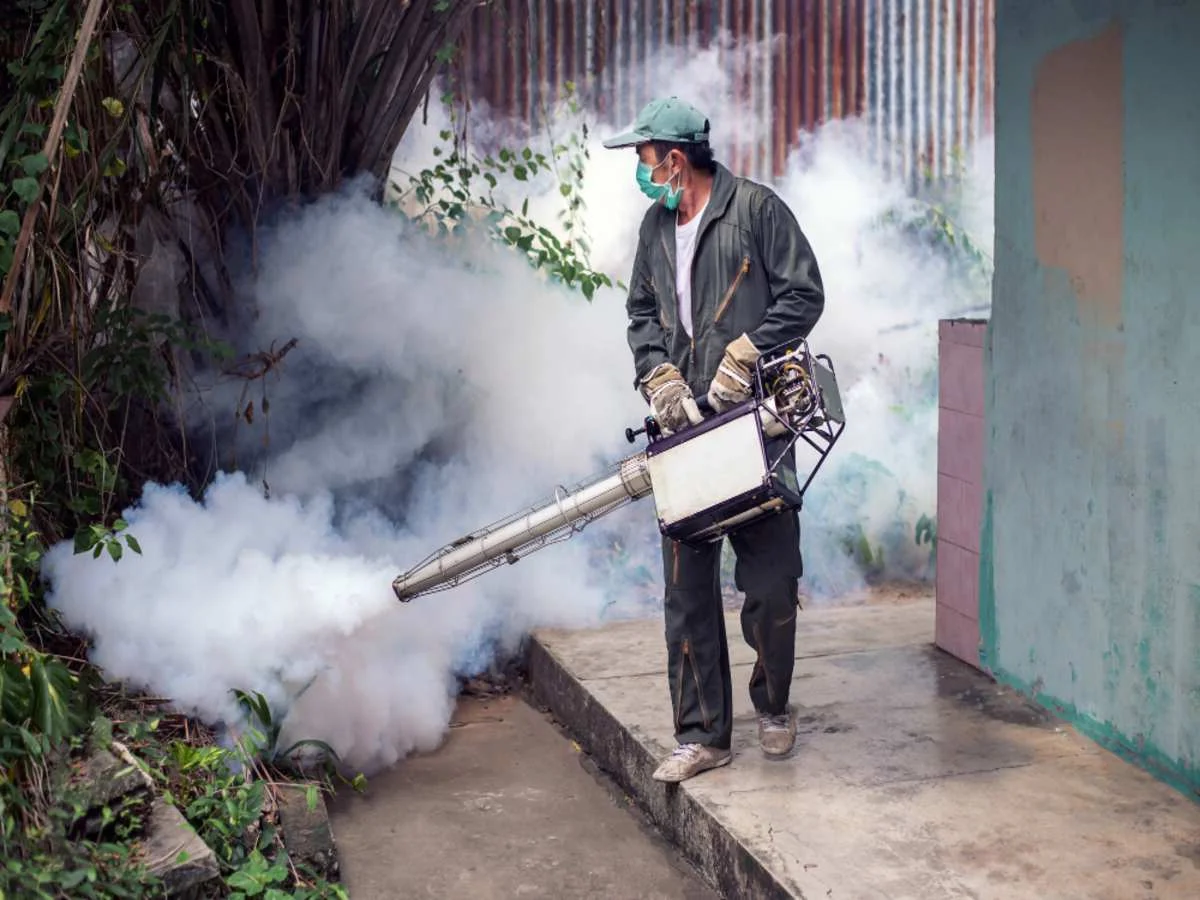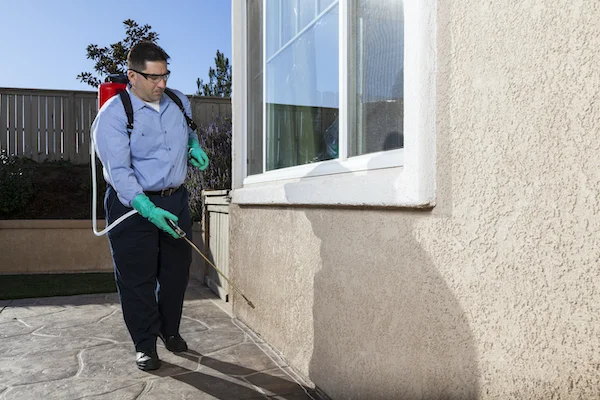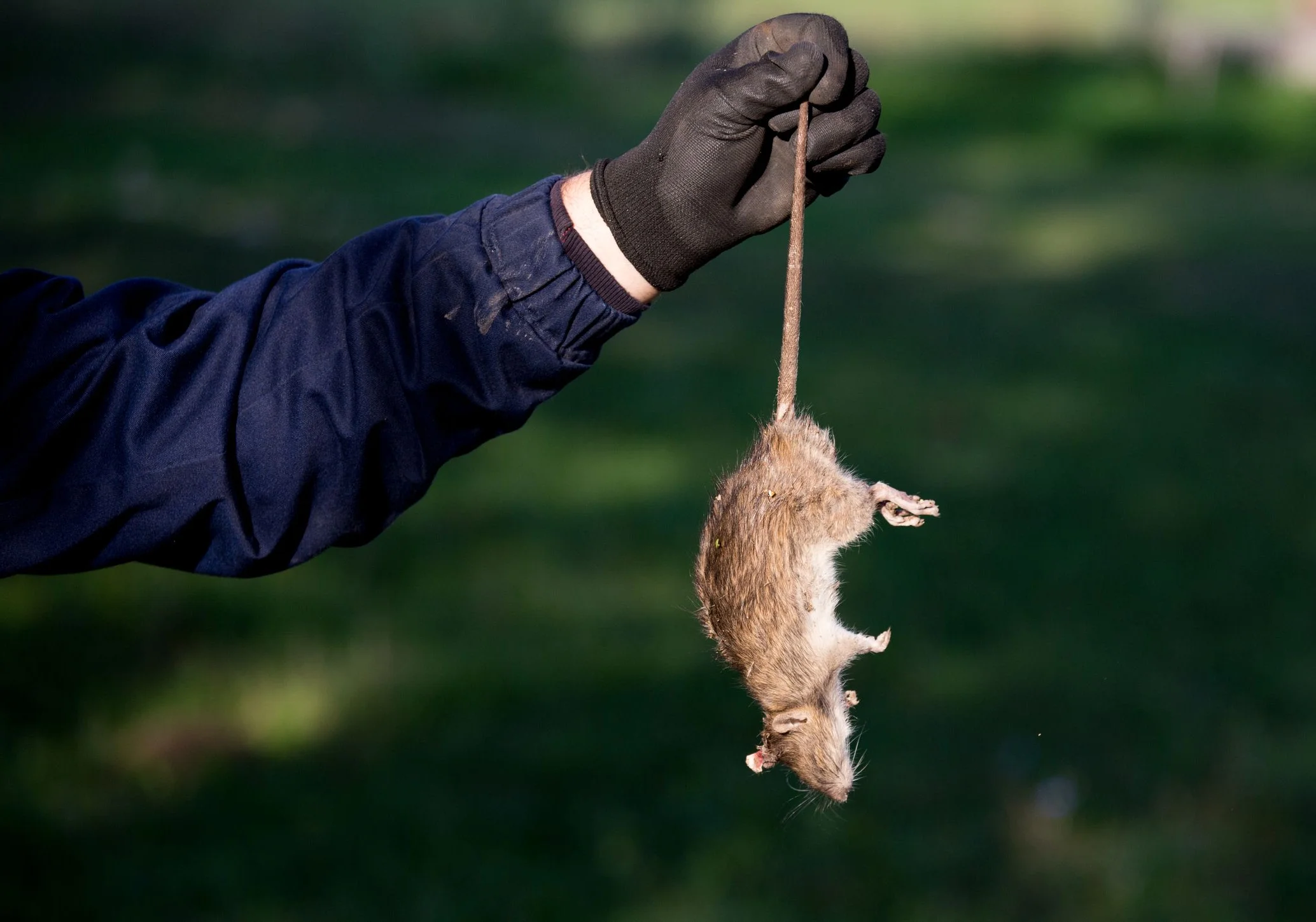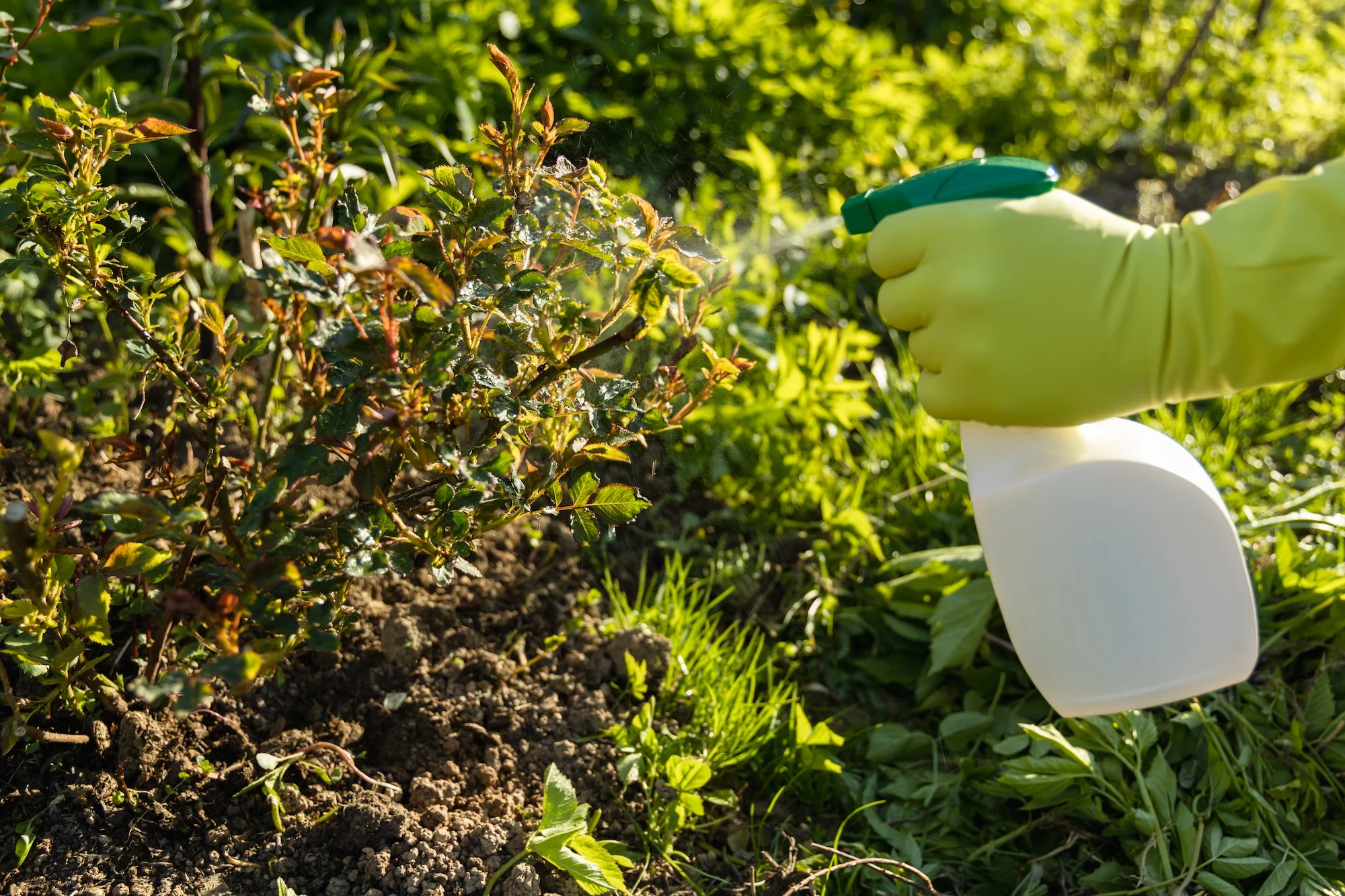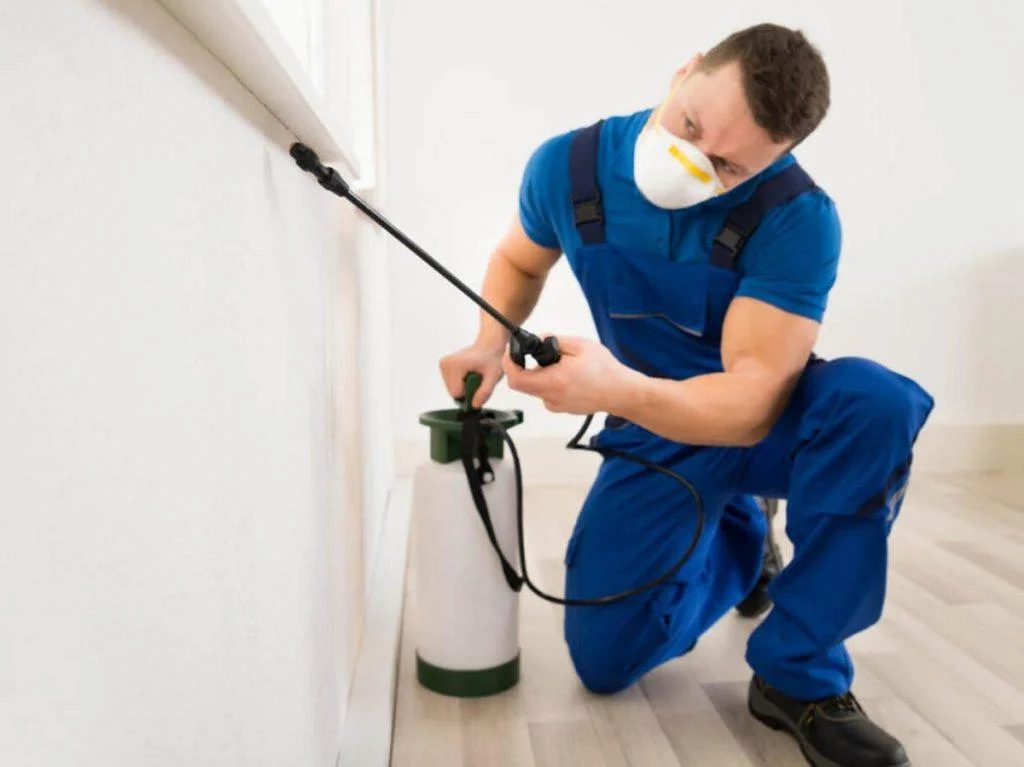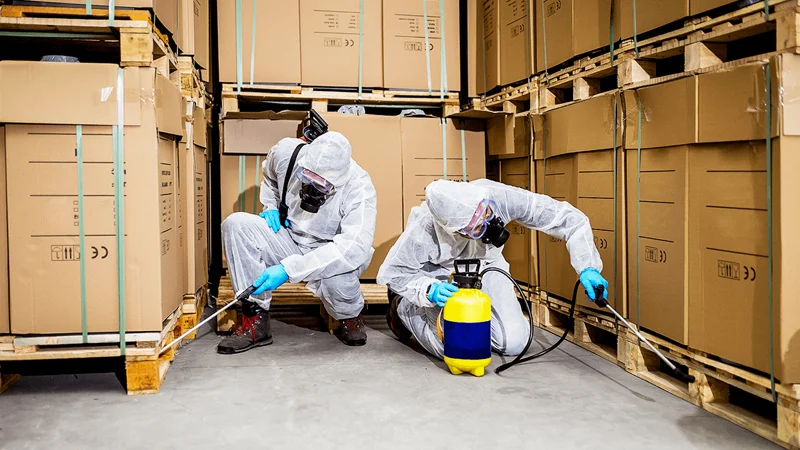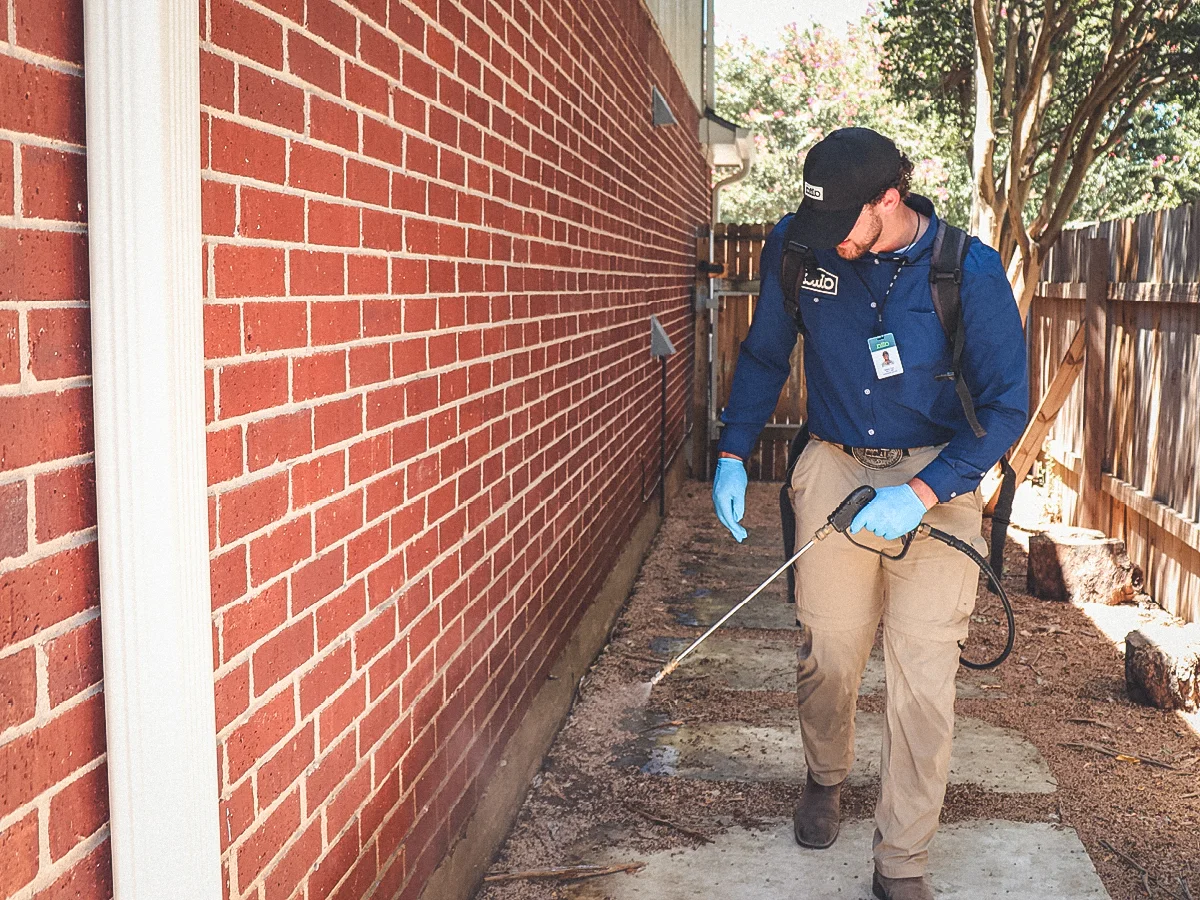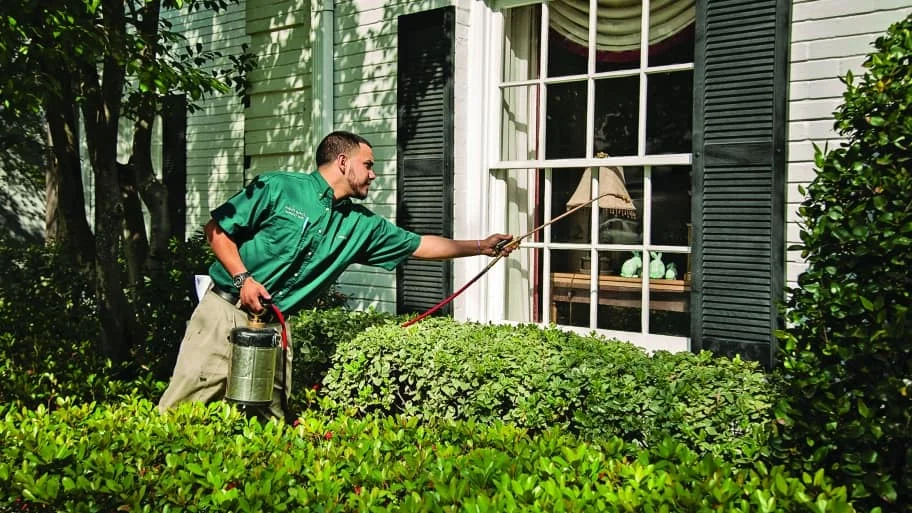From the Appalachian Mountains in the north to the Atlantic coastal plains in the south, Georgia's diverse landscapes create perfect conditions for a remarkable variety of persistent pests. The Peach State's warm, humid climate, abundant vegetation, and year-round growing seasons support continuous pest activity that challenges homeowners and businesses in both urban centers and rural communities. Effective pest control in Georgia requires specialized knowledge of these regional conditions, seasonal pest cycles, and the unique construction methods found throughout the state.
Properties across Georgia face relentless pest pressure that can damage structures, compromise health, and disrupt quality of life in communities from Atlanta to Savannah. Whether dealing with termite colonies in historic buildings, fire ant infestations in suburban lawns, or mosquito problems near the state's numerous waterways, local professional exterminators provide essential expertise tailored to Georgia's specific regional challenges. This guide explores common Georgia pests, effective control strategies including eco-friendly pest solutions, and why the state's unique combination of climate, architecture, and ecology makes professional knowledge particularly valuable for lasting protection.
Dealing with persistent Georgia pests? Our local specialists offer
emergency pest control
24/7 and comprehensive
termite & mosquito protection throughout the state.
Contact us today for prompt assistance!
Pest Control Challenges Specific to Georgia
Georgia's unique environment creates distinctive pest control challenges that require specialized approaches. Here's why pest management in the Peach State demands expert attention:
-
Year-round pest activity Georgia's mild winters and extended warm seasons create minimal dormancy periods for pests, allowing insects and rodents to remain active throughout the year with multiple breeding cycles that generate constant pressure on structures and landscapes.
-
High humidity and rainfall The state's humid subtropical climate, particularly in central and southern regions, creates ideal moisture conditions for termites, mosquitoes, cockroaches, and other moisture-dependent pests to thrive continuously, accelerating reproduction cycles and population growth.
-
Diverse ecosystems Georgia encompasses mountains, piedmont, coastal plains, wetlands, and urban centers—all supporting different pest populations that readily move between these zones as development expands, creating complex management challenges in transition areas.
-
Historic structures Georgia's abundance of historic properties, particularly in Savannah, Atlanta, Macon, and other historic districts, require specialized pest management approaches that protect irreplaceable features while addressing unique vulnerabilities created by traditional construction methods.
-
Invasive species pressure The state faces ongoing challenges with invasive species including Argentine ants, Asian tiger mosquitoes, Formosan termites, and other non-native pests that have established populations and lack natural predators to limit their spread throughout Georgia's hospitable environment.
Understanding these Georgia-specific challenges is crucial for effective pest management. Professional pest control services develop customized treatment plans that address these regional factors, providing targeted protection for the state's distinctive environmental and structural conditions.
Common Pests in Georgia
Georgia's climate and geography support an extraordinary diversity of pests that impact homes and businesses throughout the year. Here are the most common invaders that plague the Peach State:
Termites
Professional termite inspection being conducted at a Georgia property
Georgia falls squarely within the "Termite Belt," with eastern subterranean termites active throughout the state and Formosan termites established in coastal regions. These wood-destroying insects thrive in Georgia's warm, humid climate, causing millions in property damage annually. The state's abundant rainfall, numerous waterways, and extensive wooded areas create ideal conditions for termite colonies to develop and expand year-round.
Professional termite control in Georgia typically combines liquid soil treatments with monitoring and baiting systems, adapted to each property's specific construction and conditions. The state's red clay soils can present challenges for creating consistent chemical barriers, requiring specialized application techniques. Annual termite inspections are particularly crucial for Georgia properties, as early detection can prevent the extensive damage these silent destroyers cause to the state's many wooden structures.
Mosquitoes
Mosquito fogging treatment being applied in a Georgia backyard
Georgia's abundant water sources, high humidity, and extended warm seasons create perfect breeding conditions for mosquitoes, with activity beginning as early as March and continuing into November in many areas. Asian tiger mosquitoes, southern house mosquitoes, and numerous other species thrive throughout the state, creating both nuisance issues and potential disease transmission concerns including West Nile virus, Eastern equine encephalitis, and other mosquito-borne illnesses.
Effective mosquito control combines source reduction to eliminate standing water, strategic larvicide applications in water features that cannot be drained, and barrier treatments around properties. Professional services typically provide monthly treatments during Georgia's extended mosquito season to protect outdoor living spaces and reduce disease risks, with customized approaches for properties near lakes, rivers, and coastal areas where mosquito pressure remains high for much of the year.
Fire Ants
Professional treating fire ant mounds in a Georgia yard
Red imported fire ants have become firmly established throughout Georgia, creating painful and potentially dangerous situations for residents. These aggressive insects deliver painful stings that can cause severe reactions in sensitive individuals, while their large, durable mounds damage lawns, agricultural areas, and recreational spaces across the state. Georgia's mild climate allows these invasive pests to remain active nearly year-round, with peak activity during spring and fall.
Professional fire ant management combines broadcast bait applications, individual mound treatments, and strategic timing for maximum colony elimination. While do-it-yourself treatments may provide temporary relief, comprehensive control typically requires professional approaches that address both visible mounds and developing colonies. For Georgia properties with historical fire ant issues, ongoing management programs ensure families and pets can safely enjoy outdoor spaces without constant concern about painful encounters.
Cockroaches
Georgia's warm climate supports several cockroach species, with German cockroaches, American cockroaches (palmetto bugs), and smokybrown cockroaches being particularly problematic. These resilient insects thrive in the state's humid conditions, readily establishing populations in homes and businesses where they contaminate surfaces, trigger allergies, and create sanitation concerns. In urban areas like Atlanta, high-density housing can facilitate movement between units, while rural properties often experience seasonal invasions from outdoor populations.
Professional cockroach management involves thorough inspection to locate harborage areas, targeted treatments using baits, insect growth regulators, and residual products, and ongoing monitoring to prevent reinfestation. For Georgia properties, comprehensive cockroach control addresses both indoor populations and the outdoor reservoirs that continually pressure structures, particularly during seasonal temperature changes that drive roaches to seek shelter.
Rodents
Setting up rodent control measures for a Georgia home
Georgia's rodent challenges include Norway rats, roof rats, house mice, and occasional wildlife intrusions from native species like cotton rats. Urban areas face consistent pressure from established populations, while suburban and rural properties often experience seasonal movements as agricultural activities and weather patterns affect rodent behavior. Georgia's mild climate allows year-round reproduction with minimal seasonal reductions.
Comprehensive rodent control begins with thorough exclusion work to seal entry points—particularly important for older Georgia homes with their numerous gaps and penetrations. Professional services combine strategic monitoring systems, targeted trapping or baiting programs, and ongoing prevention measures. For historic properties common throughout Georgia, specially adapted approaches protect irreplaceable structural elements while effectively managing rodent populations.
Eco-Friendly Pest Control for Georgia's Diverse Ecosystems
Georgia's remarkable biodiversity—from mountain streams to coastal marshes—demands thoughtful pest management approaches that balance effective control with environmental responsibility. Modern eco-friendly pest solutions protect homes and businesses while preserving the state's natural treasures. Professional services implement Integrated Pest Management (IPM) principles that minimize chemical use through careful inspection, precise targeting, and preventative measures.
This sustainable methodology is especially valuable in Georgia, where watersheds connect urban areas to sensitive ecosystems throughout the state's river basins. Eco-friendly solutions are ideal for families with children, pet owners, organic gardeners, and properties near sensitive areas like waterways or wildlife habitats. Professional exterminators receive specialized training in Georgia's environmental protection standards, ensuring treatments comply with regulations while safeguarding the Peach State's natural resources.
Environmental Commitment
Georgia pest control specialists understand the importance of protecting the state's diverse ecosystems, using carefully selected treatments that effectively manage pests while minimizing impact on beneficial insects, wildlife, and water quality.
Below is a comparison of different pest control treatment methods, including green options, highlighting their benefits for Georgia properties:
| Treatment Method |
Benefits |
Ideal Use in Georgia |
| Targeted Applications |
Minimizes chemical use through precise application only where needed, reducing environmental impact while addressing specific pest issues.
|
Fire ant management, cockroach control, and treatment of specific pest harborage areas while protecting Georgia's waterways and beneficial insect populations, including important pollinators.
|
| Biological Controls |
Uses natural predators, parasites, or pathogens to reduce pest populations in an environmentally compatible way.
|
Mosquito management in ecologically sensitive areas, garden pest control, and specialized applications for properties near Georgia's many rivers, lakes, and coastal marshlands.
|
| Physical Exclusion |
Creates barriers to prevent pest entry without chemicals; provides long-term protection with zero environmental impact.
|
Rodent exclusion for historic properties, preventing seasonal pest invasions, and creating barriers against termites and other structure-infesting pests without chemical dependence.
|
| Habitat Modification |
Addresses conditions that attract pests by altering environmental factors that support pest populations without chemical intervention.
|
Moisture management to reduce termite and mosquito habitat, proper landscaping adjustments to minimize fire ant establishment, and vegetation management to reduce harborage areas for various Georgia pests.
|
| Low-Impact Formulations |
Uses products designed to break down quickly in Georgia's environment while effectively targeting specific pests.
|
Applications in environmentally sensitive areas, treatments for properties with organic gardens, and services for health-conscious families seeking effective pest control with minimal chemical footprint.
|
Residential & Commercial Pest Control Throughout Georgia
Residential Pest Protection
Georgia homes face unique pest pressures influenced by location, architecture, and surrounding environment. Residential pest protection programs are tailored to the specific challenges of different Georgia properties, from historic Savannah row houses to suburban Atlanta developments, rural farmhouses in south Georgia, and mountain cabins in the north.
Professional services offer customizable plans that provide protection against Georgia's most common household pests, with particular emphasis on termite prevention, mosquito and fire ant management, and comprehensive approaches for cockroaches and rodents. Treatment schedules adapt to the state's extended warm seasons, with year-round protection necessary for most properties. For Georgia's many historic homes, specialized approaches address the unique vulnerabilities of traditional construction while preserving architectural integrity.
Commercial Pest Control
From restaurants in Atlanta to hotels in Savannah, healthcare facilities in Augusta, and warehouses along Georgia's transportation corridors, the state's businesses need reliable pest management to protect their reputations and comply with regulations. Commercial pest control programs address the distinctive challenges of Georgia's business environment, with industry-specific protocols for hospitality, food service, healthcare, education, manufacturing, and logistics.
Professional services provide comprehensive documentation—critical for compliance with Georgia's health codes—along with discreet service scheduling and emergency response capabilities. Many of the state's commercial properties occupy historic buildings with inherent pest vulnerabilities that require specialized approaches. For Georgia's important tourism and hospitality sectors, effective pest management provides invisible protection that enhances visitor experiences while meeting all regulatory requirements.
From residential pest protection plans to customized
commercial pest control solutions, we have you covered throughout Georgia –
schedule your service now and keep your
property pest-free!
Why Choose Local Experts in Georgia?
When it comes to protecting your Georgia property from pests, working with local experts offers distinct advantages. A local pest control company understands the region's specific challenges and truly cares about the community. Here's why choosing local Georgia specialists makes a difference:
-
Knowledge of regional pest patterns Local technicians understand how Georgia's diverse regions—from the mountains to the coast—affect pest behavior and treatment needs, allowing for precisely targeted approaches that account for local conditions.
-
Experience with Georgia architecture Local experts are familiar with the state's distinctive building styles—from historic antebellum homes to modern suburban construction—and understand the unique pest vulnerabilities each presents.
-
Understanding of local soil conditions Georgia's varied soil types, from red clay to coastal sand, significantly impact termite behavior and treatment efficacy. Local professionals know how to adapt approaches for maximum protection based on your property's specific soil composition.
-
Familiarity with seasonal timing Local specialists know exactly when different seasonal pests become active in specific Georgia regions, allowing for precisely timed preventative treatments before problems emerge—from spring termite swarms to fall rodent invasions.
-
Awareness of local regulations Georgia maintains specific pest control regulations that vary by municipality, particularly regarding treatments near waterways and protected habitats. Local professionals navigate these requirements daily, ensuring all treatments remain fully compliant.
By choosing local professional exterminators with deep knowledge of Georgia's specific pest challenges, property owners receive more effective, regionally-appropriate solutions than generic approaches used by those unfamiliar with the Peach State's unique conditions.
Regional Pest Control Services Throughout Georgia
Different regions of Georgia face unique pest challenges based on geography, climate variations, and surrounding ecosystems. Professional pest control specialists understand these regional differences:
Metro Atlanta & North Georgia
Including: Atlanta, Marietta, Alpharetta, Decatur, Athens, Rome, Gainesville
Georgia's urban center and northern regions blend densely populated areas with suburban development and rural communities in the foothills of the Appalachian Mountains. Urban properties face continuous pressure from established rodent populations, while newer suburban developments often contend with disturbed wildlife and fire ant establishment in landscaped areas. The region's mix of historic neighborhoods and new construction creates varied pest vulnerabilities, while the cooler climate in mountain areas creates slightly different seasonal patterns than the rest of the state.
Central Georgia
Including: Macon, Columbus, Warner Robins, LaGrange, Milledgeville
The heart of Georgia experiences the full range of the state's pest challenges, with significant termite pressure, established fire ant populations, and seasonal surges in various flying insects. The region's mix of urban centers, suburban communities, and agricultural areas creates complex pest dynamics at these intersections. Historic properties in cities like Macon face particular challenges with wood-destroying organisms, while newer developments contend with landscape pests migrating from surrounding natural areas.
Coastal Georgia
Including: Savannah, Brunswick, St. Marys, Darien, Tybee Island
Georgia's coastal region faces distinctive pest challenges influenced by high humidity, sandy soils, and proximity to marshlands and beach environments. Formosan termites have established populations in this region, creating additional pressure beyond native subterranean species. Mosquitoes thrive in the abundant standing water of coastal lowlands, while wood-destroying organisms find ideal conditions in the historic structures common throughout the area. Salt marsh mosquitoes and sand flies create additional seasonal challenges in beachfront communities.
South Georgia
Including: Valdosta, Albany, Thomasville, Tifton, Waycross
The southern portion of the state experiences the most subtropical conditions, with extended warm seasons and mild winters that allow nearly year-round pest activity. Agricultural areas face unique challenges as field pests regularly migrate to residential properties during planting and harvest activities. The region's numerous waterways and wetlands support significant mosquito populations, while its position near Florida increases exposure to certain invasive species moving northward, including various ant species and occasional tropical pests during particularly mild winters.
Top Cities for Pest Control in Georgia
Professional pest control services are available throughout the Peach State. Below are some of the major Georgia cities where quality pest management is especially important:
Atlanta
As Georgia's largest city, Atlanta faces diverse pest challenges across its extensive urban and suburban landscapes. The city's varied neighborhoods—from historic districts to modern developments—create complex pest dynamics. Established areas like Virginia-Highland and Inman Park contend with termites and rodents in aging structures, while newer suburban communities like those in Gwinnett and Cobb counties experience landscape pest pressures including fire ants and mosquitoes. The region's extensive tree canopy and numerous creeks create additional challenges with mosquitoes and moisture-related pests. Atlanta's position as a transportation hub also increases exposure to occasional invasive species moving through shipping and commerce channels.
Savannah
This historic coastal city exemplifies Georgia's unique pest challenges in its historic district and surrounding areas. Savannah's abundance of centuries-old structures creates significant termite vulnerability, with both native subterranean and invasive Formosan termites established in the region. The city's proximity to coastal marshlands generates intense mosquito pressure, particularly during warm months. Historic properties in the downtown district require specialized pest management approaches that protect irreplaceable architectural elements while addressing the unique vulnerabilities of traditional construction methods. The city's position as a tourism destination demands particularly discreet and effective pest management for hotels, restaurants, and historic sites.
Georgia Service Coverage Map
Seasonal Pest Guide for Georgia
Spring (March-May)
- Termite swarms emerge
- Fire ant activity increases dramatically
- Mosquito breeding begins
- Ant colonies expand rapidly
Recommendation: Schedule annual termite inspection, implement mosquito prevention, and begin fire ant management before summer heat.
Summer (June-August)
- Mosquito activity at peak levels
- Cockroach populations surge
- Stinging insects establish colonies
- Fire ants remain highly active
Recommendation: Maintain regular mosquito treatments, address indoor pest concerns, and continue comprehensive yard protection.
Fall (September-October)
- Rodents begin seeking indoor shelter
- Spiders become more visible
- Secondary termite swarms possible
- Fire ants prepare for winter
Recommendation: Critical timing for rodent exclusion work and final treatments before winter months.
Winter (November-February)
- Rodent activity concentrated indoors
- Occasional warm days activate pests
- Reduced but continued insect activity
- Preparation for spring resurgence
Recommendation: Focus on indoor pest management while preparing for early spring activity as Georgia's winter remains relatively mild.
Georgia's relatively mild climate means significant year-round pest activity, with only brief periods of reduced pressure during the coolest winter months. Professional pest control services adjust their approach with each season to address predictable patterns and protect properties during key seasonal transitions.
What Our Georgia Clients Say
"After years of battling fire ants in our Marietta yard, their comprehensive treatment program has finally allowed our children to play safely outdoors without constantly watching for mounds."
- Rebecca T., Marietta
★★★★★
"Their termite protection program saved our historic Savannah home from what could have been devastating damage. Their inspector found early signs of activity that our previous company had completely missed during routine inspections."
- Michael S., Savannah
★★★★★
"As a restaurant owner in Atlanta, pest control is critical for our reputation. Their commercial service is thorough, discreet, and has kept us consistently in compliance with health regulations despite operating in a century-old building in Midtown."
- David L., Atlanta
★★★★★
Frequently Asked Questions
What makes Georgia's termite pressure so significant?
Georgia faces exceptionally high termite pressure due to several converging factors. The state's warm, humid climate creates ideal conditions for termites, with temperatures rarely dropping low enough to significantly slow their activity, even during winter months in most regions. Georgia's abundant rainfall and numerous water features maintain soil moisture levels that subterranean termites thrive in, while the state's extensive wooded areas provide natural habitats from which termites readily spread to structures. Additionally, the prevalence of slab-on-grade foundations in many Georgia homes can make termite detection more challenging as colonies may develop with fewer visible signs than in properties with crawlspaces. The state also sits directly in the "Termite Belt," with native eastern subterranean termites throughout the state and invasive Formosan termites established in coastal areas, creating dual pressure from these destructive pests. These factors combine to make professional termite protection particularly important for Georgia property owners.
How can I effectively manage fire ants in my Georgia yard?
Effective fire ant management in Georgia requires a strategic, multi-phase approach rather than simply treating visible mounds. Professional fire ant programs typically begin with broadcast bait applications in early spring before mounds become highly visible, targeting foraging ants that will carry the bait back to colonies and affect the queens. This is followed by targeted treatments of existing mounds using products specifically formulated for fire ant control. For properties with severe infestations, we recommend a dual-approach treatment schedule with applications in both spring and fall when fire ants are most actively foraging. Ongoing prevention is critical in Georgia, as untreated neighboring properties often serve as sources for reinfestation. For children's play areas, sports fields, and high-traffic lawn areas, we can implement more intensive protection zones. Professional treatment typically provides 6-12 months of control, depending on property conditions and pressure from surrounding areas, making regular maintenance essential for long-term management of these aggressive pests in Georgia's hospitable climate.
How often should Georgia homeowners schedule pest control?
The ideal frequency for pest control in Georgia depends on several factors including your property's location, specific pest pressures, and desired level of protection. Most Georgia homes benefit from quarterly service that aligns with the state's seasonal pest cycles, though many homeowners opt for bi-monthly service due to the extended active season for most pests. Properties with specific challenges often require adjustments to this schedule. Homes with heavy mosquito pressure typically need monthly treatments during the March-October mosquito season, while properties with historical fire ant or termite issues often benefit from specialized service schedules focused on these specific pests. Rural properties may face different pressures than urban homes, particularly with wildlife interface issues. During your initial inspection, our technicians will evaluate your property's unique situation and recommend a customized schedule that provides protection against Georgia's predictable seasonal pest pressures while addressing any specific concerns for your home or location.
How do you safely treat historic Georgia homes for pests?
Historic homes throughout Georgia, from Savannah's landmark district to historic neighborhoods in Atlanta, Macon, and other cities, require specialized pest management approaches that protect irreplaceable structures while effectively controlling pests. Our historic property protocol begins with particularly thorough inspections that account for the unique construction features of period homes—from heart pine structural elements to plaster walls, multiple renovation layers, and distinctive foundation types. We identify vulnerable areas while documenting architectural elements that require protection during treatment. For termites and other wood-destroying organisms, we utilize specialized equipment to access void areas and detection methods that minimize disruption to historic materials. Treatment selections emphasize low-impact approaches when possible, with options including targeted treatments, dust applications in void spaces, and specialized liquid applications when necessary. For properties on the National Register or in historic districts, we ensure all treatments comply with preservation guidelines while still providing effective pest protection. Our technicians receive specific training in historic property pest management, understanding the delicate balance between effective control and preservation of Georgia's architectural heritage.
